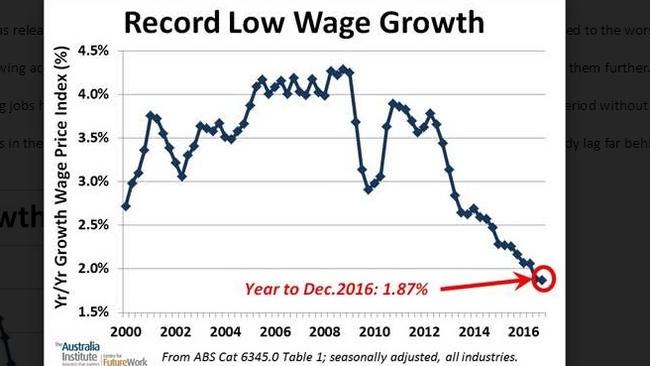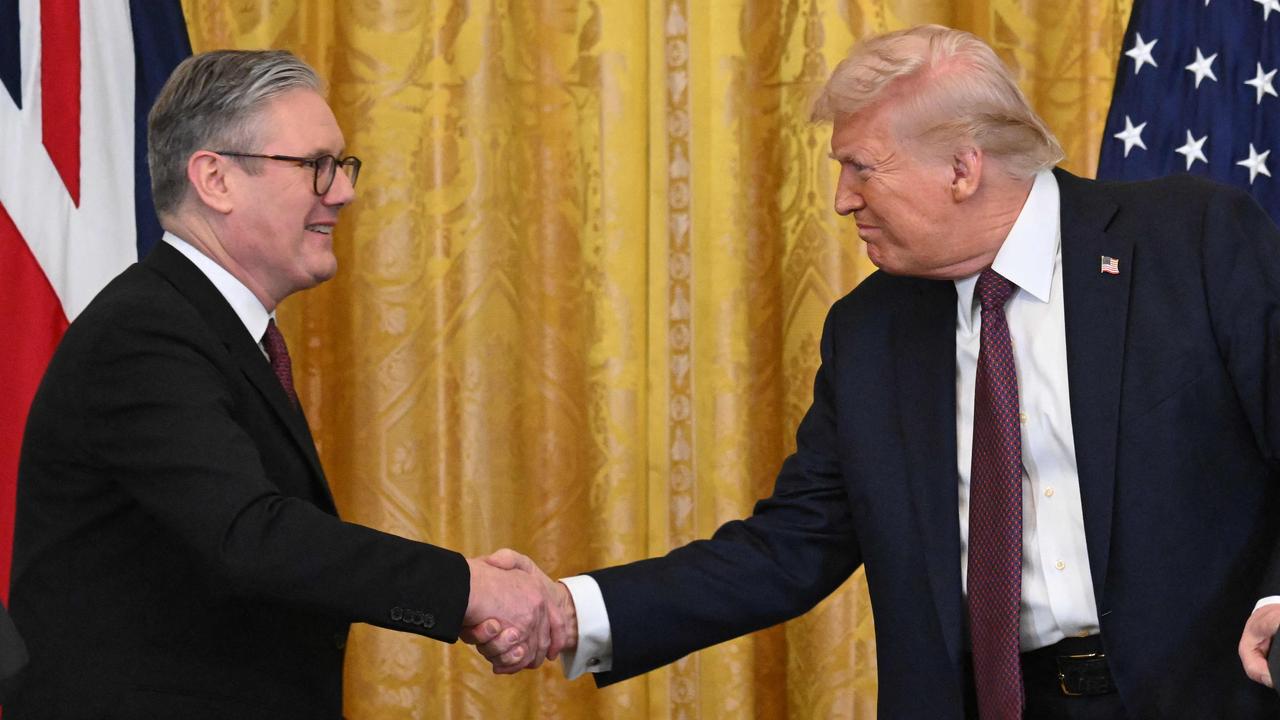The penalty rate cut is bad news for Malcolm Turnbull and Bill Shorten
THOUSANDS of workers will be worse off from today’s decision to cut Sunday penalty rates. And it couldn’t have happened at a worse time.

ANALYSIS
MALCOLM Turnbull and Bill Shorten will themselves be penalised after today’s Fair Work Commission decision to reduce Sunday penalty rates.
This will be minor consolation for the million or so workers who will have their incomes lowered, but they should at least be aware they will not be the only victims of the ruling.
Mr Turnbull was a spectator to the two-year FWC review of penalties, but will not be able to escape the fact the decision was made on his watch.
Further, by one calculation some 60 of his MPs and senators have cheered on a rate reduction or complete removal.
The Prime Minister will not be keen to be seen boasting about wages being cut at a time when pay rises are all but stagnant.
Official figures this week showed wages grew by just 1.9 per cent in 2016, compared to the 3.4 per cent which had been the annual average.
“It’s painfully ironic that the Fair Work Commission’s decision was released just a day after the ABS confirmed the pace of Australian wages had already slowed to the worst in the history of their data,” The Australia Institute’s Jim Stanford.
Annual wage growth is now well below the rise in housing prices to the extent that any nexus is laughable.
The Turnbull government will highlight the prospect of reduced Sunday wages leading to more jobs, which will be more of a hope than an evidence-backed forecast.
And while it could be some time before the retail and hospitality industry report they are hiring more — and there are doubts, even from the Fair Work Commission, this will be a large number — a substantial group of workers will see their incomes fall almost immediately.

They and their unions will be cranky at the government. Woe be it to the next MP accused of misusing taxpayer-funded travel.
The ACTU is calling this Fair Work Commission decision the biggest mass wage cut since the Great Depression, and blaming Mr Turnbull, who is fully aware the service industry is fuelling much of Australia’s economic performance, even with Sunday penalty rates.
But the unions might not be happy with Mr Shorten, either.
The Opposition Leader was jammed into a penalty-rate corner during the election campaign last year and has found little additional space on the matter since.
His problem was that were there to be rates cut his only options would be to either damn the Fair Work Commission, to which he gave power over penalties when a minister, or meekly accept its decision.
At one point he attempted to escape that tight corner by saying: “Labor is the party of penalty rates.”
Eventually he had to concede he had just one option: “I said I’d accept the independent tribunal.”
But he also said: “The evidence doesn’t support it. It is not going to happen. When people ask me, what if? I am saying it won’t happen.”
But it did. While Mr Shorten was assuring voters rates wouldn’t be cut, the Greens said they would offer legislation to restore any lowered rates and today reaffirmed that.
The government is unlikely to make room for this legislation to be debated, but in the meantime will encourage intensive questioning of Labor as to its position.
Would the Opposition back the Greens or stick with the umpire’s decision?
In a January speech Mr Shorten said Labor would not legislate to set penalties — leaving the job to the FWC — even though cuts would add to income inequality.
“But if necessary, we would consider changing the rules, which guide the exercise of the commission’s discretion,” he said.
“If the commission were to cut penalty rates for hundreds of thousands of already low-paid workers without sufficient compensation — leaving people worse off — Labor would not accept this.”
Just how has yet to be fully demonstrated.



